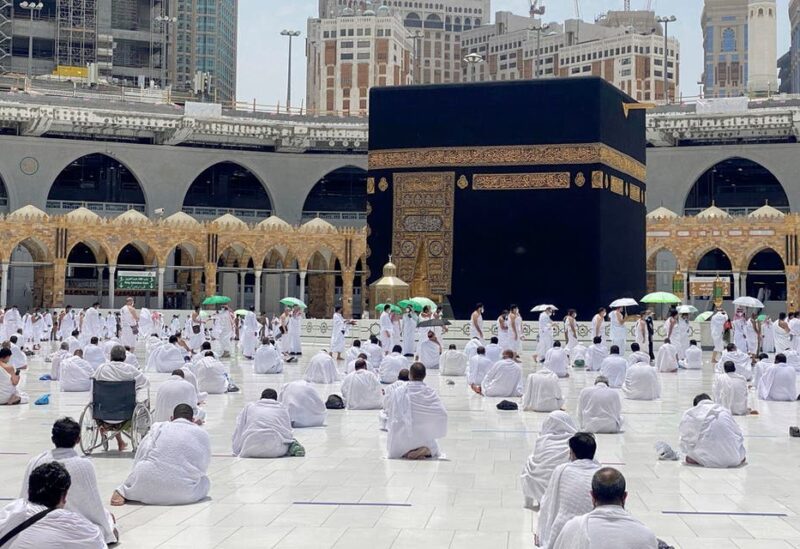
Saudi Arabia will limit this year’s Hajj pilgrimage to 60,000 residents and nationals living in the Kingdom due to the ongoing coronavirus pandemic, the Ministry of Hajj and Umrah announced in a statement Saturday.
“In light of what the whole world is witnessing from the continuing developments of the coronavirus pandemic and the emergence of new mutations, Hajj registration will be limited to residents and citizens from inside the Kingdom only,” the ministry said in a Twitter thread.
Those who are between the ages of 18-65 and are fully vaccinated, have received their first dose at least 14 days prior, or those who are vaccinated and have recovered from a COVID-19 infection are allowed to register, the ministry added.
The registration portal will be launched on June 13 at 1 p.m., the Ministry of Hajj and Umrah said, adding that there is no priority for early registration.
“The Ministry of Hajj and Umrah confirms that the government of the Kingdom of Saudi Arabia always prioritizes the safety, health and security of pilgrims,” the official Saudi Press Agency (SPA) reported.
The Hajj pilgrimage this year is expected to begin mid-July.
Last year, the Kingdom only allowed a limited number of people who met certain criteria to participate in the Hajj pilgrimage, which is one of the five pillars of Islam and required for able-bodied Muslims at least once in their lifetime.
As few as 1,000 people who were already residing in Saudi Arabia were selected to take part. Two-thirds were foreign residents from among the 160 different nationalities that would have normally been represented at the hajj. One-third were Saudi security personnel and medical staff.
No further details were released on this year’s safety and preventative measures. However, last year the group was required to self-isolate at home seven days prior to arriving in Mecca, as part of the requirements to participate in the pilgrimage.
The participants were then quarantined in the designated hotel until the start of the rituals.
The pilgrims were transported in assigned groups daily while every 50 individuals were accompanied by a health leader to ensure safety measures, including wearing a mask and social distancing, were implemented at all times.